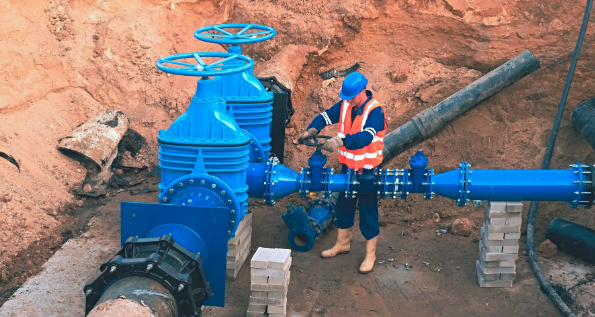In an era where cities burgeon and skyscrapers endlessly ascend toward the heavens, a significant challenge persists: managing the resource that has cradled life since time immemorial — water. Australia, like many nations, grapples with ensuring a sustainable water supply to its ever-expanding urban territories. This endeavour becomes increasingly imperative as urban locales witness an unprecedented demographic boom. Herein, smart water technology emerges not just as a solution, but a necessity, providing cities a lifeline to manage precious water resources with precision, efficiency, and foresight.
Understanding Smart Water Technology:
Smart water technology encompasses a suite of tools, applications, and practices that leverage Information and Communication Technology (ICT) to manage water resources more efficiently and sustainably. It employs a range of technologies including IoT (Internet of Things) devices, AI (Artificial Intelligence), data analytics, and cloud computing to monitor, analyse, and optimise water usage, distribution, and management across a myriad of urban applications.
An Urban Resilience Tool:
The intersection between smart water technology and burgeoning urbanisation is pivotal in crafting resilient and sustainable cities. While urban expansion signifies socio-economic growth, it also spotlights the need for meticulous resource management. Thus, the employment of smart water technology endeavours to amalgamate urbanisation with sustainability, ensuring every drop counts and concurrently, fortifying cities against the challenges that come with explosive population growth.
Safeguarding Water Supply and Distribution:
In a typical urban scenario, ensuring a consistent and safe water supply is paramount. Smart water management utilises sensors and meters embedded within the water infrastructure to monitor flow, detect leaks, and even discern contamination in real-time. This not only safeguards the health of citizens but also circumvents the colossal waste of water through rapid response mechanisms. Furthermore, predictive analytics allows cities to anticipate and mitigate supply challenges, establishing a consistent water supply even amidst burgeoning demand.
Optimising Water Usage in a City:
Beyond mere supply, smart water technology imparts a meticulous approach to water usage across a city’s various sectors. For instance, smart irrigation systems in urban parks and green spaces can employ sensor technology to gauge soil moisture levels, deploying water only when and where it is needed, thus preventing over-irrigation. Similarly, smart buildings utilise data analytics to optimise water usage, ensuring sustainability while accommodating an influx of inhabitants and users.
Strengthening Wastewater Management:
With booming populations comes the parallel surge in wastewater generation. Smart wastewater management involves the integration of advanced treatment technologies with data analytics to treat and recycle wastewater more effectively. By harnessing AI and IoT, cities can better navigate the complexities of wastewater management, transforming waste into an asset through recycling and reuse, thereby assuring a more circular and sustainable water economy amidst growing demands.
Fostering Inclusive Growth:
It is pertinent to note that the intersectionality of smart water management and urbanisation must prioritise inclusive growth. By deploying smart water technologies, cities can ensure that access to clean, safe water is not a privilege but a pervasive right, accessible to all segments of the burgeoning population. Furthermore, by ensuring that smart water initiatives are intertwined with broader urban planning and development strategies, cities can pave the way for a future where growth and sustainability are synonymous, rather than antithetical.
Finally, in the panorama of soaring urban landscapes, smart water technology is not merely an ally; it is an indispensable component driving the synergistic relationship between sustainable water management and urban expansion. As populations continue to swell, adopting and integrating smart water technology will underpin not only their ability to quench the thirst of their inhabitants but also to foster a future where every drop is optimised, every citizen is served, and every aspect of water management is seamlessly integrated into the mosaic of sustainable urban living.







Leave a Reply